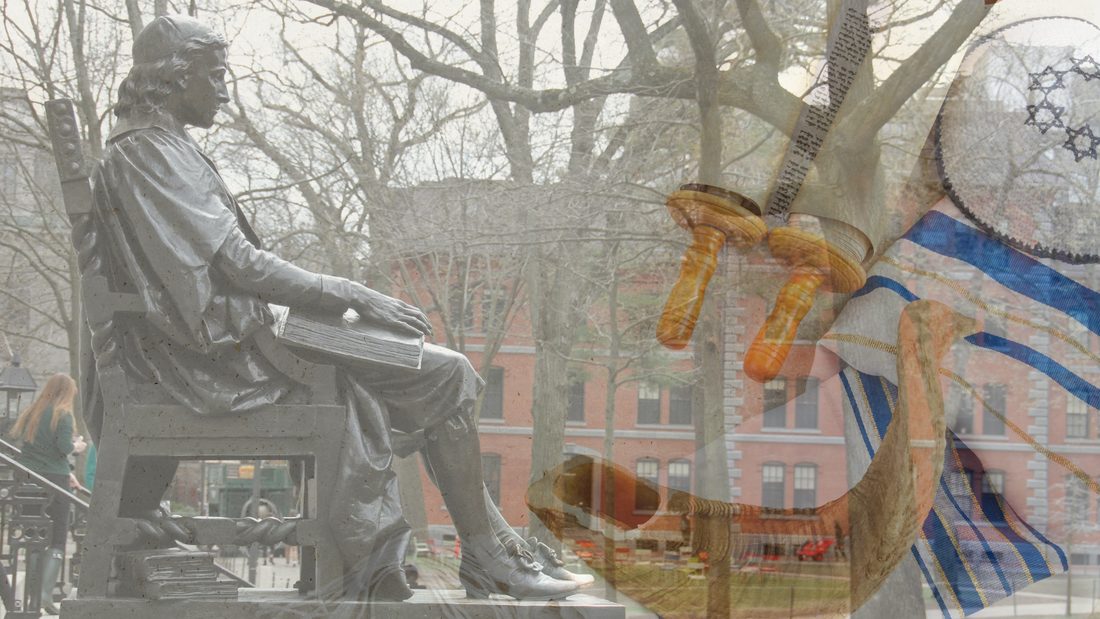|
Jewish students at Harvard are suing the university for failing to address rampant antisemitism on campus. Their case, Kestenbaum v. Harvard, raises sharp questions about free speech and the responsibilities of a private university. Harvard is not required by law to observe the principles of the First Amendment the way a state-sponsored school would. But Harvard must live up to its self-proclaimed commitment to open discourse.
The plaintiffs, Students Against Antisemitism, contend that “since October 7, 2023, when Hamas terrorists invaded Israel and slaughtered, tortured, raped, burned, and mutilated 1,200 people – including infants, children, and the elderly – antisemitism at Harvard has been particularly severe and pervasive.” One of the central claims of the case is that “Harvard selectively enforces its policies to avoid protecting Jewish students from harassment, hires professors who support anti-Jewish violence and spread antisemitic propaganda, and ignores Jewish students’ pleas for protection.” This, combined with the university's reluctance to discipline students engaging in antisemitic behavior, paints a disturbing picture. The lawsuit points out a stark contrast: while Harvard mandates training classes to address various forms of discrimination – including “sizeism,” fatphobia, racism, and transphobia – it seems lackadaisical about antisemitic incidents. This was memorably captured by former Harvard President Claudine Gay who suggested “that calls for the genocide of the Jewish people do not necessarily violate Harvard’s policies.” Furthermore, the case highlights instances where Harvard faculty members have not only condoned but actively participated in rallies characterized as antisemitic. The suit claims the university's response to a student mob taking over a campus building for antisemitic purposes was not disciplinary action but the provision of burritos and candy. The suit alleges that while the university aggressively enforces policies against bias towards other minority groups, it turns a blind eye to antisemitic incidents. The plaintiffs propose disciplinary measures, including the termination of faculty and administrators involved in antisemitic discrimination, as well as suspension or expulsion for students engaged in such conduct. It also calls for antisemitism training for all members of the Harvard community and the rejection of donations implicitly or explicitly conditioned on the promotion of antisemitic views. We commend Students Against Antisemitism for their bold stance against Harvard’s obvious double standard, but some of the lawsuit’s remedies might deepen Harvard’s problematic relationship with free speech – a serious concern for the university with the lowest-ranked commitment to speech in the nation, according to the free-speech organization FIRE. This ranking could actually get worse with the further expansion of diversity, equity, and inclusion (DEI) programs. Under the DEI banner, expansive bureaucracies have already cast a pall over campus speech. We need less of this, not more. Consider how DEI was used at Harvard to defenestrate Carole Hooven, a distinguished author and longtime Harvard lecturer on evolutionary biology who committed the thought crime of asserting that there are two biological sexes. We need fewer such codes, not more, for speech to thrive again on campus. The critical distinction to be drawn is between harsh language and justifications for what constitutes a just war, and the celebration of outright hatred, violence, and heinous acts. As we previously wrote, “if someone is highly critical of Israel, the bombing of Gaza, or is pro-Palestine, they are well within the parameters of a fair debate. But if someone can respond to the murder of babies and find it ‘exhilarating,’ (as one Cornell professor did), they may be within the bounds of the First Amendment, but we have to ask if it’s just the speech that’s evil. At some point, for private entities in particular, the heinous uses some make of free speech rights raise serious questions regarding the freedom of association (or disassociation) choices of the institutions themselves. Educational institutions cannot always hide behind the laissez faire ethos of free speech when choosing the administrators and the professors that represent them, or even the students who form part of the community the university actively creates. Public institutions, like all of society, are challenged to adapt principles spelled out by the U.S. Supreme Court in its 1968 Brandenburg v. Ohio opinion, which gave maximum berth to speech – even hate speech. How do the principles of this ruling apply given the new technological reach of speech and the ability to use social media to incite others to violence in the form of swatting, anthrax, bombs, or doxing? How do we apply that ruling’s maximum respect for speech in modern circumstances so that if only a tiny percentage of followers is responsive to incitement, it still amounts to a high probability of violence? Or, as former U.S. Senator and current University of Florida President Ben Sasse told The Wall Street Journal, the U.S. Constitution “draws a deep, deep line at speech and action,” that “threats are the front edge of action,” and that “orchestrated plans, or getting to a definable way of targeting specific people, is when speech ceases to be deliberation.” The risk with such speech is unlawful violence, not just war or self-defense. On the other hand, universities must accept much controversial but benign speech today, even if it might “trigger” someone. For Harvard, better approaches to free inquiry are emerging from the Council on Academic Freedom, a faculty organization dedicated to expanding respect for speech on campus. For society at large, perhaps the principles of Brandenburg need to be updated for the digital age. In the meantime, when the murder-adjacent speak out and self-identify, they should suffer the social and career consequences. Comments are closed.
|
Archives
June 2024
Categories
All
|
ABOUT |
ISSUES |
TAKE ACTION |



 RSS Feed
RSS Feed